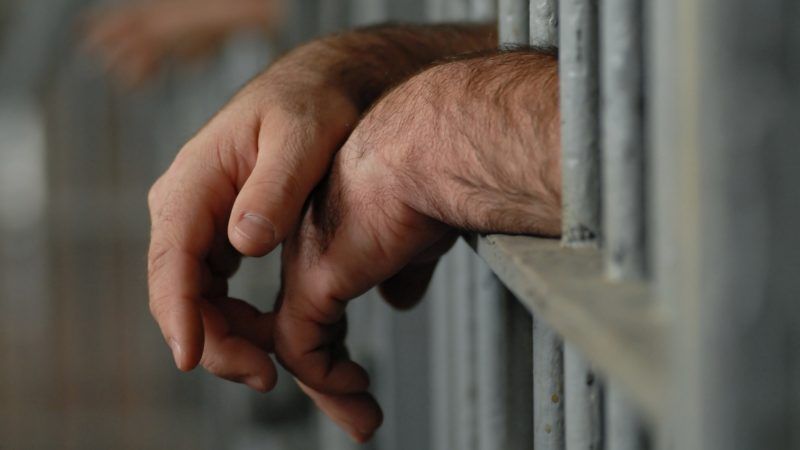Report: Solitary Confinement in U.S. Prisons Spiked by 500 Percent When Coronavirus Hit
In a matter of weeks, the number of inmates in solitary jumped from 60,000 to nearly 300,000.

At least 300,000 people have been put in solitary confinement in U.S. prisons and jails since COVID-19 reached American shores, an increase of nearly 500 percent over pre-pandemic levels, according to a report released today by Unlock the Box, a coalition of civil rights groups that oppose solitary confinement.
The number of people held in solitary confinement—that is, confined to their cell for 22 to 24 hours a day—on any given day across U.S. prisons and jails has been declining over the past decade as states have slowly limited the practice. Prior to COVID-19, the daily number sat around 60,000 people, according to conservative estimates.
"What we are witnessing now is an evisceration of that trend and, I fear, a rollback of those reforms," Amy Fettig, director of the American Civil Liberties Union (ACLU) Stop Solitary Campaign, said in a conference call with reporters today.
The largest contributor to the increase by far is the federal Bureau of Prisons (BOP) system, where roughly 163,000 inmates have been on various forms of modified lockdown since late March.
Jean Casella, the co-director of Solitary Watch, a nonprofit investigative group, says that while putting inmates in solitary might appear to make sense, it's not similar to either medical quarantine or self-imposed isolation.
"Solitary is not like quarantining, and it's a very big deal," Casella said.
Lockdown units also often require additional staff, the report notes, because of the need to handcuff and escort individual inmates whenever they leave their cells. The Unlock the Box campaign argues that reducing the populations of overcrowded prisons and jails is the most effective way to combat the spread of COVID-19 behind bars.
In April, the American Civil Liberties Union (ACLU) released new epidemiological models estimating that, unless jail populations are dramatically reduced, COVID-19 could kill 100,000 more people than current projections, even with social distancing protocols.
Although many jurisdictions took unprecedented steps to reduce their incarcerated populations and limit the intake of new inmates—the BOP approved the early transfer of about 4,000 inmates into home confinement—advocacy groups say it was too few people. According to the latest numbers compiled by The Marshall Project, there have been nearly 44,000 confirmed infections in U.S. prisons and jails. As Reason reported, prisons and jails account for many of the largest COVID-19 hotspots in the country.
Civil liberties advocates, prison reform organizations, and inmates themselves have been pressuring states to limit the use of solitary for decades, citing the unsurprising evidence that locking human beings in tiny boxes alone has negative psychological effects. For people already suffering from mental illness, the effects of solitary confinement, combined with the overall poor health services in U.S. prisons, can be catastrophic.
In response, some states have limited the amount of time inmates can spend in solitary, while Colorado has abolished the practice almost entirely. In 2016, the Obama administration banned solitary confinement for juvenile offenders in federal prisons.
"The progress that's been made over the last decade in reducing those numbers was extremely hard-won," Casella says. "We find it disturbing to see this unprecedented escalation in solitary in response to coronavirus."
Prior to COVID-19, the BOP had not placed its entire system on lockdown for 35 years, according to the Unlock the Box report.
The BOP recently put the federal prison system on total lockdown again this month in response to the nationwide protests over the police killing of George Floyd in Minneapolis. These lockdowns have resulted in suspensions of visitations at prisons, as well as extremely limited access to phone calls and emails.
"Society is in an uproar over having to isolate themselves in their homes for [a few weeks or months]," a Texas inmate who has been in solitary confinement for 21 years wrote in a letter to Solitary Watch included in today's report. "I wonder, after this is all over with, will they take into consideration that inmates have been in administrative segregation (isolation) for years, if not decades, in rooms the size of their closets? Will they cry for change?"
